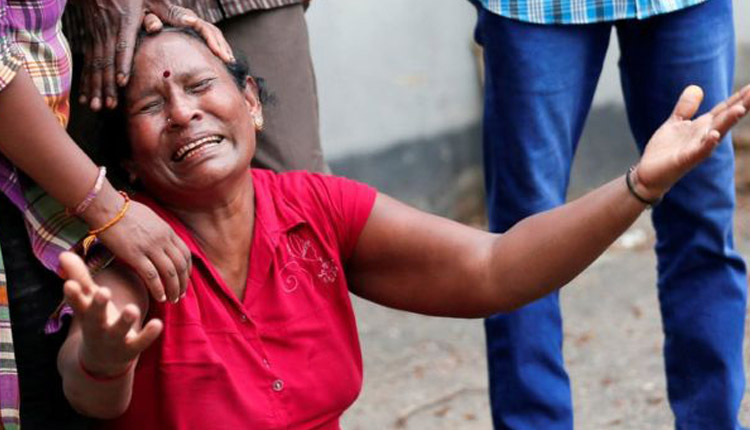The death toll in Sri Lanka has jumped to 290 after a wave of bombings hit churches and luxury hotels across the country on Sunday.
Police said 24 people had been arrested, but it is not yet known who carried out the attacks.
About 500 people are injured and at least 35 foreigners are among the dead.
The Easter Sunday bombings were the deadliest violence Sri Lanka has witnessed since the end of the country’s civil war in 2009.
However Sri Lankan cabinet spokesman, Rajitha Senaratne said, “We do not believe these attacks were carried out by a group of people who were confined to this country. There was an international network without which these attacks could not have succeeded.”
Late on Sunday, Sri Lankan Prime Minister Ranil Wickremesinghe said security services had been “aware of information” of possible attacks but that the information had not been acted upon.
The first reports of explosions came at about 08:45 local time with six blasts reported within a small space of time.
Three churches in Negombo, Batticaloa and Colombo’s Kochchikade district were targeted during Easter services. Blasts also rocked the Shangri-La, Kingsbury and Cinnamon Grand hotels in the country’s capital.
All the attacks were carried out by suicide bombers, officials said.
Police then carried out raids on two addresses and there were explosions at both. One was in Dehiwala, southern Colombo, and the other was near the Colombo district of Dematagoda in which three officers were killed.
The air force said an improvised explosive device – a 6ft-long [1.8m] plastic pipe packed with explosives – had been found and disposed of near the airport in the capital, Colombo.
Police have not provided a breakdown of how many were killed and wounded at each location.
The government has urged people not to speculate about who could be behind the attacks and restricted access to social media in the aftermath of the bombings.
No information has been given on the identity of the 24 people arrested.
However, the BBC’s Azzam Ameen in Colombo says the bombers are thought to be part of a “radical extremist Islamist group” according to authorities.
Addressing reports that officials had had prior intelligence of forthcoming attacks, Mr Wickremesinghe said: “We must look into why adequate precautions were not taken. Neither I nor the ministers were kept informed.”
The vast majority of those killed are thought to be Sri Lankan nationals, including scores of Christians who died at Easter church services.
The ministry of foreign affairs says it believes 35 foreign nationals are among the dead.
They include three of the children of Danish billionaire Anders Holch Povlsen, a family spokesman confirmed to the BBC. Mr Povlsen owns the Bestseller clothing chain and holds a majority stake in clothing giant Asos.
Other international victims include:
At least five British citizens – including two with joint US citizenship
One Portuguese citizen and six Indian nationals
Two engineers from Turkey, according to Turkish news agency Anadolu
Two Chinese nationals, according to the China Daily
Two Australians, Prime Minister Scott Morrison said
One person from the Netherlands
One person from Japan, according to Japanese media citing government sources
source:BBC


